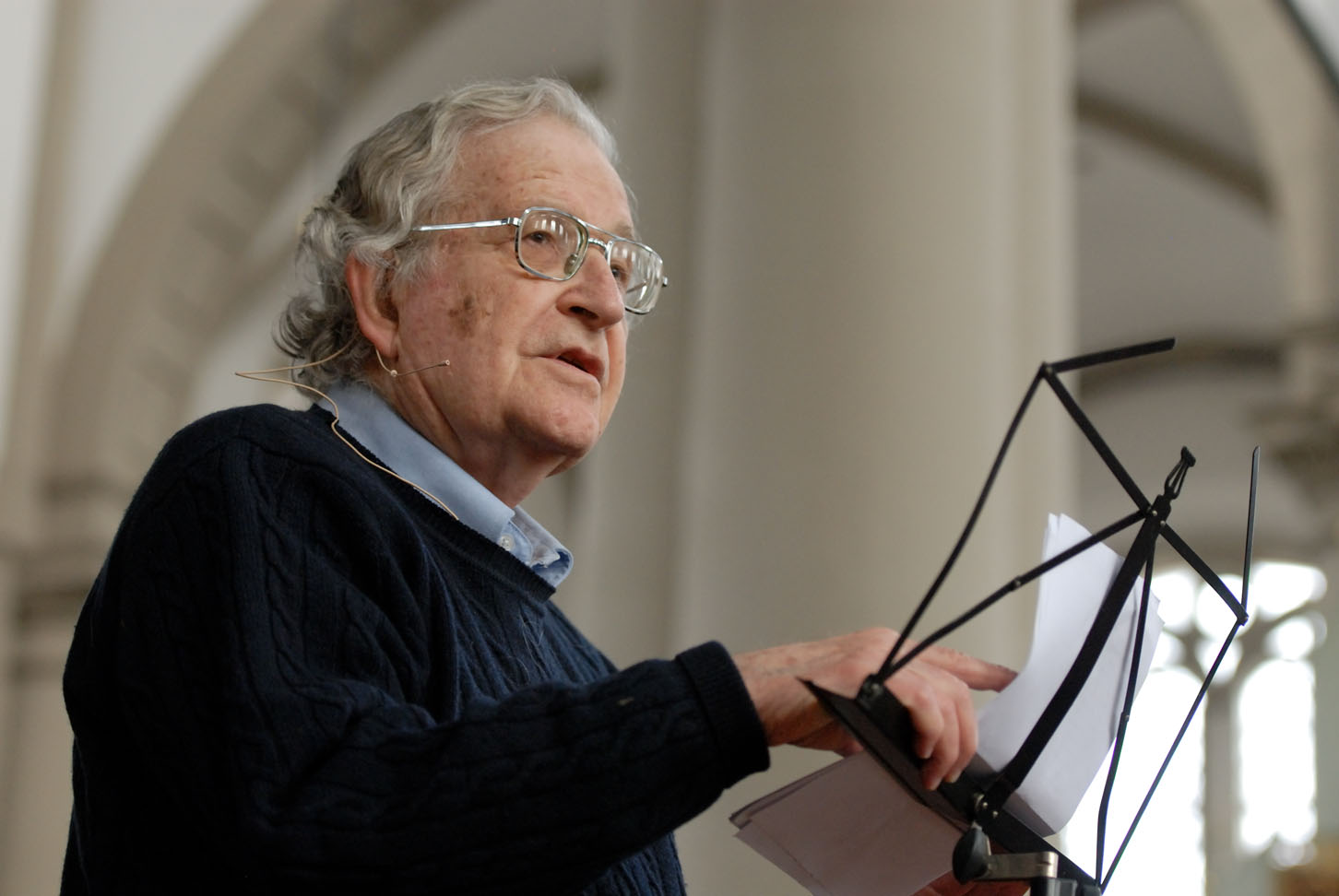Free Speech
Free Speech Leftists Still Exist
The perception, understandably, follows that the right is in favor of free expression, and the left has become wholly illiberal.

In brighter times, the reprimanding of Lindsay Shepherd at Wilfrid Laurier University would have found strong condemnation among left intellectuals. Instead, left publications largely chose to ignore the issue. You will find no pieces on Vox covering Wilfrid Laurier or Bret Weinstein’s clash with overreaching faculty at Evergreen, nor will the incrimination of BDS activism by US lawmakers find exposure outside of niche outlets like The Intercept. The free speech debate, in other words, has become too partisan.
When Lindsay Shepherd revealed that Jordan Peterson’s fears about Bill C16 were well-founded, and that pointing out that sex differences exist was considered by Wilfrid Laurier’s administration to be comparable to Adolf Hitler, the response of left publications was either disinterest or full-throated attacks on Peterson as a reactionary monster. If one sought to hear out Lindsay Shepherd, the outlets willing to speak with her were mainly conservative or libertarian YouTube channels belonging to figures like Stephen Crowder and Stefan Molyneux. The perception, understandably, follows that the right is in favor of free expression, and the left has become wholly illiberal.
But the hyper-partisan atmosphere surrounding free speech has ignored many left thinkers who have defended liberal principles relentlessly for years. There remain many on the left who stand for free expression and an open academy. Writing on his blog in 2015 Freddie de Boer made the obvious point that “the left should embrace free speech rights and other legal protections of rights because, due to our lack of power, the left is most likely to be subject to assaults on those rights from above.” Chris Hedges has also written forcefully against the idea of Nazi-punching as a political practice, and rejects Antifa and black bloc tactics. Angela Nagle has written objectively about the alt-right from a left position, seeking to understand web culture rather than ask for the censorship of unruly demons. Greenwald, Fang and Jilani at The Intercept routinely push back against leftist calls for censorship, and do so from their own understanding of left principles. And Jesse Singal at New York Magazine has pushed back on nonsense arguments equating free speech with violence.
Much of the commentary surrounding the regressive left traces its frustrations back to postmodernism. If knowledge is only a consequence of accepting or rejecting power structures, after all, then open debate between people can solve nothing. Language would only be an illusion designed to appease power structures or defy them. Appeals for ‘rationality’ and ‘objectivity’ would only be veiled appeals to the normality of whiteness. But recall that Noam Chomsky himself, a titan of left thought, rejected postmodernism for his entire life, and debated Michel Foucault in 1967, dismissing the blank slate and Foucault’s naïve argument that there was no defined human nature. Chomsky traces much of postmodernism to the peculiarities of French intellectuals in Paris, condemning them by noting that many were “the last Stalinists, if they weren’t Stalinists they were Maoists…Kristeva happened to be in the mid-70s, a flaming Maoist.” Chomsky was a scientist who fused his analytical attitude with critiques of media (many of which are now embraced by the right, as Donald Trump finds himself the enemy of conformist media consensus) and a dismantling of the arguments for United States military intervention. He was a modernist, and represents the rational left, which has always rejected postmodern assumptions about science, human nature and language.
Chomsky praised Alan Sokal, the professor behind the famous Sokal hoax, and he has spoken unequivocally in favor of free speech, especially for the most abhorrent elements of society. Chomsky said: “If someone calls you an anti-Semite…if someone says you’re a racist, a Nazi, you always lose. The person who throws them out always wins, because there’s no way of responding to such charges.” Understanding the nature of propaganda, one of Chomsky’s most famous quotes follows: “Goebbels was in favor of free speech for views he liked. So was Stalin. If you’re really in favor of free speech, then you’re in favor of freedom of speech for precisely the views you despise. Otherwise, you’re not in favor of free speech.”
The commitment of the left to non-dogmatic thought does not end there by any means. Young left writers such as Briahna Joy Gray have written nuanced critiques of Ta-Nehisi Coates and determinist identity politics from the left. Bernie Sanders himself has spoken against identity politics, and The Young Turks’ Jimmy Dore rails against the Democratic Party and the hypocrisy of using multiculturalism to cover up the dismissal of the working class. Elizabeth Bruenig is a socialist writer and a pro-life Christian, destroying conventional political boundaries. Just because there is a dark era in the state of our public intellectuals right now does not mean that new forces are not thriving on the margins, and seeking eventually to create a new left culture. Especially if the upcoming Generation Z is expected to reject identity politics, contrary to the millennials, a left understanding of history may be reborn entirely from its slow death in the 2010s at the hands of radical identity politics and the end of Obama’s broad but ultimately ineffective coalition to stop Donald Trump.
Shifting its ideas along with the left, figures on the right and in the center have also become increasingly critical of centralized corporate power. When James Damore was fired from Google for his views, the right of corporations to censor their employees became a serious problem. Facebook, Twitter and Google have earned the ire of conservatives for selectively applying algorithms, ‘shadow-banning’, and otherwise proving that they have the power to legislate content on their centralized platforms. Major tech companies, treated with unabashed optimism for decades, are now undergoing a major backlash from both the left and the right. In order to hold big tech accountable, and prevent humankind from transmuting itself into censored machinery designed to click on ads, the left and the right can and should cooperate to create a free and open internet. If net neutrality is dead, decentralization should follow – not the consolidation of speech on an increasingly few number of privately owned and centralized websites.

Libertarian attempts to create a decentralized internet, such as Peter Thiel and Curtis Yarvin’s ongoing Urbit experiment, strike me as necessary and interesting. I may disagree with Thiel, and Yarvin’s politics strike me as utterly abhorrent, but a dogmatic attitude that people we dislike and disagree with are incapable of contributing to the future will only cripple our ability to engage with reality. Decentralizing tech, or creating an individualized internet not subject to single social media leviathans whom we never consented to be ruled by, are promising goals if we hope to preserve a future of open discourse.
The margins of politics do often agree on certain critical ideas. Bernie Sanders and Donald Trump both opposed NAFTA and the Trans-Pacific Partnership, because they understood that global capital does harm middle class American workers who cannot be expected to compete with sweat shops in an open marketplace. I find Trump’s nationalism to be shallow, but leveraging national identity against a global cosmopolitan authority is a force that has found great traction across the left and the right. Few people find a world of impersonal cities connected by finance and run by decaying municipalities to be inspiring. If the entire world is being sculpted through capital to reflect the West, we must reconsider our priorities – the West is in a state of stagnation and atrophy, as unlimited global capital has in many ways taken our culture as far as it can go. The annual reiterations of Star Wars and an increasingly niche literary scene reflect repetition, exhaustion and pretentiousness as our main outlets of creative expression.
A kind of feeling is evident in the air, that we are at a point in history where we are burning our bridges to an old world and stumbling headlong like depressed and awkward homunculi into a new one we cannot possibly understand. As social media, virtual currency and technology only continue to accelerate their influence over our lifetimes, it does not make sense to hold on to old political arrangements. As far as I’m concerned, the left and the right are both dinosaurs coping with their own ignorance of major cataclysms to come.
We should follow Jordan Peterson’s Jungian advice in times in these – we have elements of our culture that we must preserve, such as individual dignity, human rights, free expression and opposition to censorship, and we must fight for that against both Donald Trump and the postmodern left. But how best to do that, and how most effectively we can translate the decaying political sphere of 2017 into a vibrant new renaissance, remains to be seen.
So here is my advice – those who emotionally resonate with the political right should seek to explore the rational arguments on the left, and those who resonate with the left should seek to understand the rational traditions of the right. If we become more like our enemies, or understand the souls of our enemies, perhaps we will find the enemy outside to evaporate, and locate a more ordered republic within. After all, that is the ultimate goal of all free and open discourse – to reach a higher vantage point through discussion than two eternally conflicting, isolated sides can ever achieve on their own.
Alexander Blum is a science fiction writer. Follow him on Twitter@AlexanderBlum0






